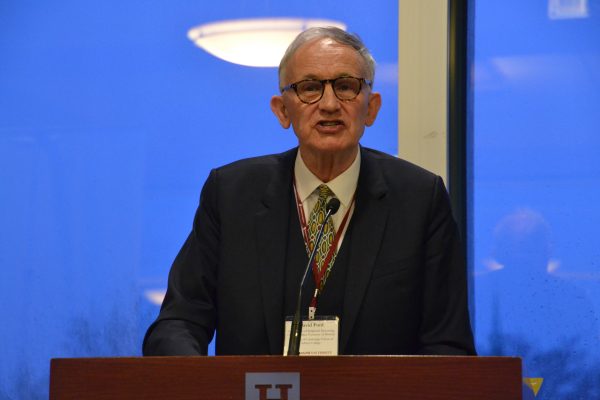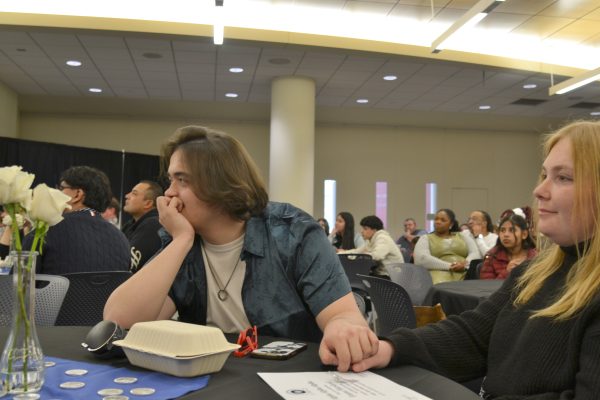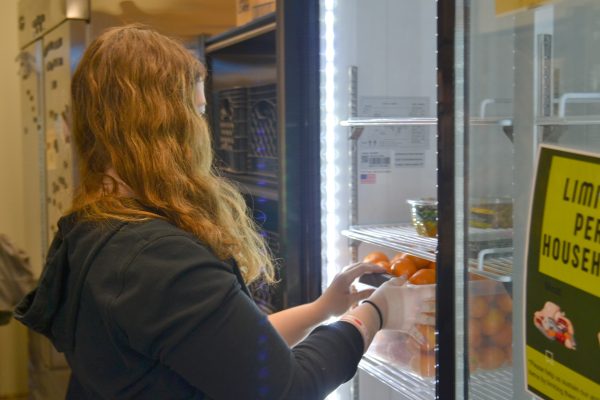Student activity fee to increase by $6 next semester
The biannual student activity fee could be raised as much as $6 to account for new HUSC funding.
May 1, 2019
Hamline’s student activity fee could be raised by as much as $6 for the 2019-2020 academic year for a total of $174 to account for budget increases across student government and other central student agencies.
This fee, charged per semester to all students, is used to fund the budgets of Hamline’s Undergraduate Student Congress, the Student Media Board, Programming Board and Campus Recreation, as well as part of the budget for Student Activities and Leadership, which provides support services for student orgs.
Each of these groups determines their portion of the fee based on their budgeting needs and projections of next year’s student enrollment totals. These are then aggregated into a single fee which is divided between semesters and charged to all students.
The proposed $6 increase to the fee is a significant jump from last year’s total of $168 per semester. It is a much bigger than occurred between the 2017-2018 academic year and 2018-2019, when the fee only went up $1 per semester from $167 to $168.
“The goal is to not raise the fee any larger than what we need to be raising the fee to do the programming that needs to be done,” Dean of Students Patti Klein said of the increase.
Out of the proposed $174 fee, HUSC’s portion is $54 per semester, an increase of $5 per semester. Student Media Board, which funds student publications including The Oracle, has increased their portion by $1 from the previous year for a total of $21 per semester.
Programming Board, Campus Rec and Student Activities have not changed their totals and will respectively receive $51, $33 and $15 of the fee per semester.
The majority of the increase of the fee comes from the Food Resource Center fund HUSC has added to their budget. This $13,000 fund is a new and potentially permanent addition to HUSC’s budget specifically targeted to funding pop-up pantries and other initiatives addressing food insecurity on campus.
“We really see this as an investment in all students being able to provide for students who are more food insecure,” said HUSC President-elect Andrew P Weston.
Feed Your Brain spearheaded the push to have the fund created as a sustainable source of support for continued efforts to address food insecurity which will continue next year under the supervision of a full-time AmeriCorps VISTA worker.
The other increase in HUSC’s budget was a $3750 addition to the executive board budget. This will be used to increase the stipends for HUSC executive board members by $500 to $700 per year, which according to Weston will more fairly compensate these student leaders for the time invested in fulfilling the duties of each position.
“I think it’s definitely not like ideal to have a jump in any cost across the board for students, but I also see all of the additions that we did make to the budget as more necessary than not,” Weston said.
The Programming Board, Campus Rec and Student Activities determine their budgets internally. Student Media Board sets theirs by a vote of committee members composed of representatives from student publications. However, HUSC’s annual budget, which determines their portion of the fee, is determined by a public vote open to the general student body. That vote was held on April 11.
The Board of Trustees has the final say on the student activity fee and are expected to review the proposed fee on May 17. If they make any changes to the total, the difference is expected to come out of the portion set aside for Student Activities, who also get part of their annual budget from other university funding sources.





